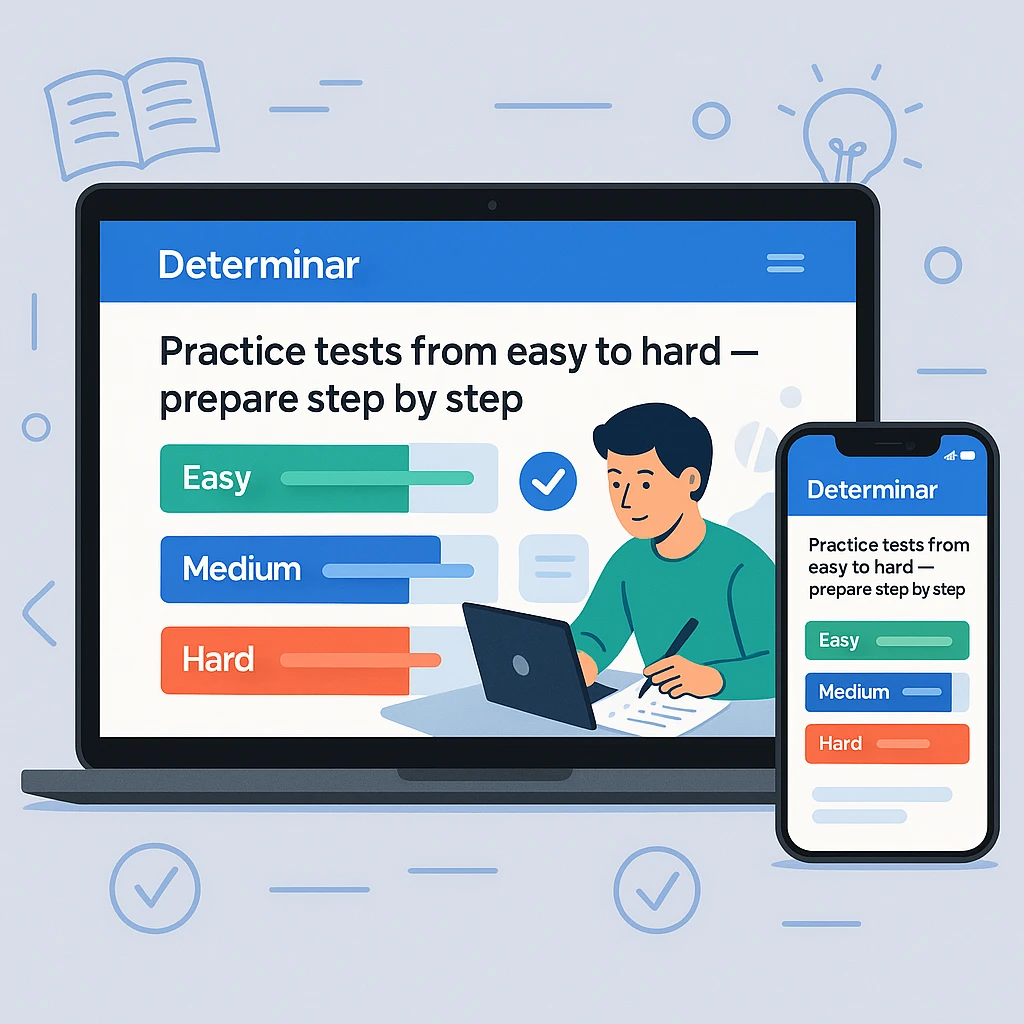Determiners & Quantifiers – Grammar| Exercise, Examples, Practice Test
Select Your Practice Test- Choose Your Difficult Level
Easy – Class 6 & Class 7 – Intermediate – Class 7 & Class 8 & Class 9 – HARD – Class 10 , CLASS 11- 12
MCQ Test, Self Assessment
| Chapter | Test Type |
|---|---|
| Easy | |
| Intermediate | |
| Hard |
📘 What Are Determiners?
Determiners are words placed in front of nouns to clarify which thing or how many things are being referred to. They help specify or quantify nouns and are essential to sentence structure in English.
🔍 Why Are Determiners Important?
Determiners provide clarity, specificity, and accuracy in communication. They help answer:
- Which one?
- Whose?
- How many?
- How much?
🧩 Types of Determiners
Determiners are grouped into several categories based on their function. Below is a detailed breakdown:
📊 Table: Types of Determiners with Examples
| Type | Examples | Function |
|---|---|---|
| Articles | a, an, the | Introduce singular nouns (specific/general) |
| Demonstratives | this, that, these, those | Point to specific things in context |
| Possessives | my, your, his, her, its, our, their | Show ownership |
| Quantifiers | some, many, much, few, little, a lot of | Indicate quantity or amount |
| Numbers | one, two, three, etc. | Give specific quantity |
| Distributives | each, every, either, neither | Refer to members of a group individually |
| Interrogatives | which, what, whose | Used in questions |
| Indefinites | any, some, several, few, all, none | Refer to non-specific nouns |
📘 Detailed Explanation with Examples
1. Articles
- Definite Article:the
- Example: The dog is barking.
- Indefinite Articles:a, an
- Example: A cat is sitting on the sofa. / An apple a day keeps the doctor away.
2. Demonstratives
- Used to indicate specific nouns in relation to speaker.
- Example: This book is mine. / Those shoes are expensive.
3. Possessive Determiners
- Show ownership or relationship.
- Example: Her laptop is new. / Our house is big.
4. Quantifiers
- Indicate quantity without giving exact numbers.
- Example: Many students passed the exam. / Some sugar is on the counter.
5. Cardinal Numbers
- Show exact quantity.
- Example: She has three brothers. / I bought two tickets.
6. Distributives
- Refer to individual items in a group.
- Example: Each student must submit the form. / Neither option is good.
7. Interrogative Determiners
- Used to ask questions.
- Example: Which book do you prefer? / Whose bag is this?
8. Indefinite Determiners
- Refer to unspecified quantity or identity.
- Example: Any child can play. / None of the answers were correct.
🧠 Common Mistakes to Avoid
| Mistake | Correct Form | Explanation |
|---|---|---|
| He has a apples. | He has some apples. | “A” cannot be used with plural nouns. |
| Each students are ready. | Each student is ready. | “Each” is singular. |
| She ate an banana. | She ate a banana. | Use “a” before consonant sounds. |
✍️ Exercises on Determiners
🧩 Exercise 1: Fill in the blanks with correct determiners
- I have read ___ interesting book about history.
- ___ students in the class passed the test.
- She gave me ___ apple and ___ orange.
- ___ of the cakes was delicious.
- ___ bag is this?
Answers:
- an
- All
- an, an
- Each
- Whose
🧩 Exercise 2: Identify the determiner in the sentence
- This dog is very friendly.
- Many people attended the event.
- Her idea was brilliant.
- He didn’t see any mistakes.
- Which color do you prefer?
Answers:
- This
- Many
- Her
- Any
- Which
🛠️ Quick Review Table
| Determiner | Countable Nouns | Uncountable Nouns | Singular | Plural |
|---|---|---|---|---|
| a / an | ✔ | ✘ | ✔ | ✘ |
| the | ✔ | ✔ | ✔ | ✔ |
| some / any | ✔ | ✔ | ✔/✘ | ✔ |
| much | ✘ | ✔ | ✘ | ✘ |
| many | ✔ | ✘ | ✘ | ✔ |
| few / a few | ✔ | ✘ | ✘ | ✔ |
| little / a little | ✘ | ✔ | ✘ | ✘ |
💡 Tips for Mastering Determiners
- Use “a” or “an” for general, non-specific nouns (singular only).
- Use “the” when referring to something specific or already mentioned.
- Choose quantifiers based on whether the noun is countable or uncountable.
- Remember that possessive determiners are different from possessive pronouns (e.g., my vs. mine).
📝 Conclusion
Determiners are essential tools in English grammar that give meaning, quantity, and clarity to nouns. Mastering them improves both written and spoken communication. Practice regularly, review examples, and use this guide as a reference for accurate usage.


